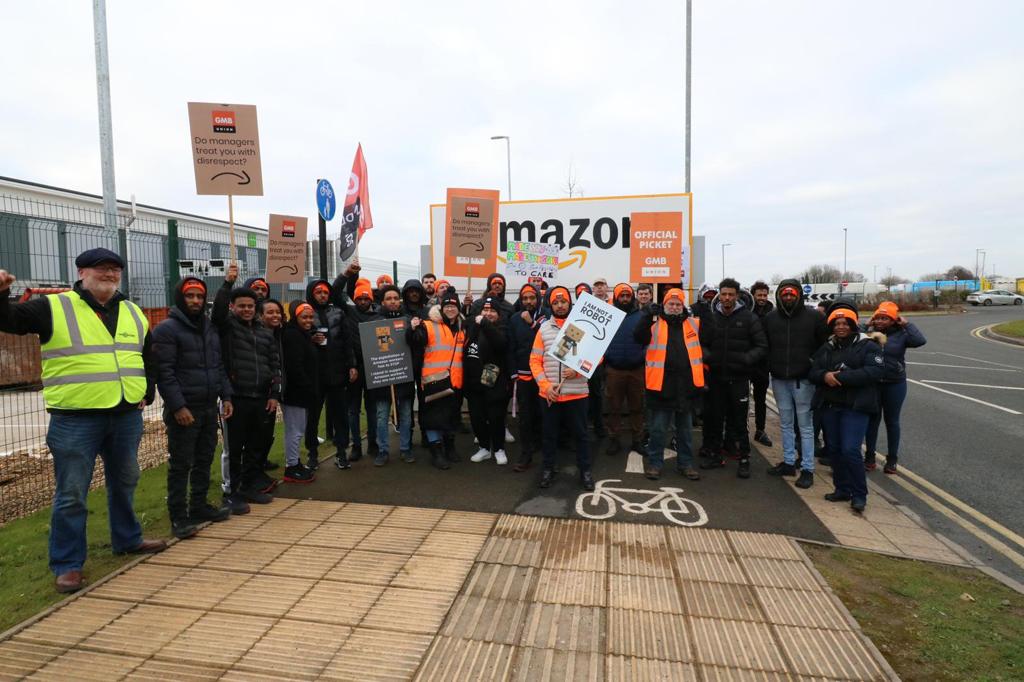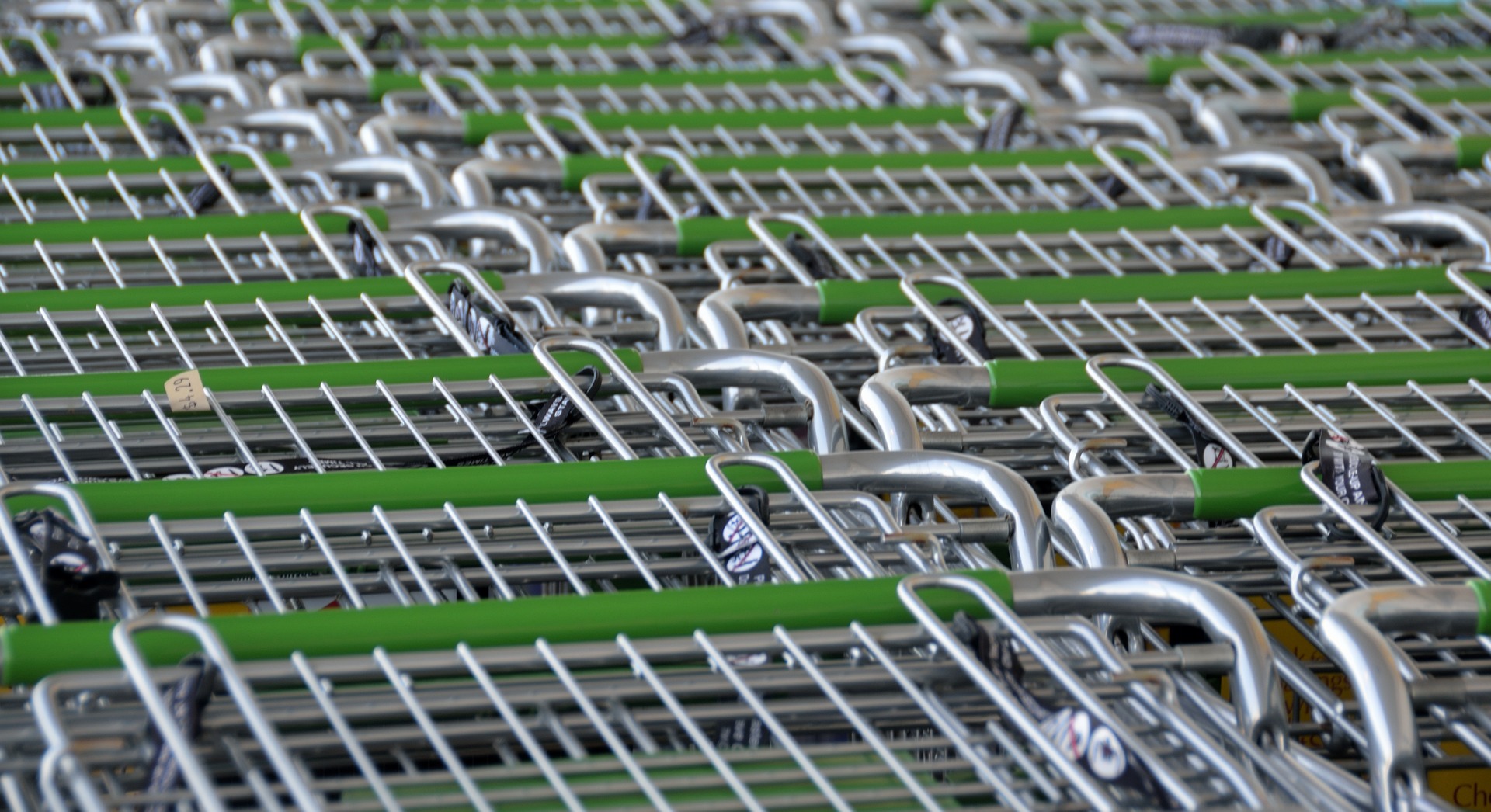More than 1,000 workers at Amazon’s warehouse in Coventry have announced plans to strike for four days in November, including on Black Friday.
The strikes are set to take place on 7, 8 and 9 November, and on 24 November, with the latter representing the holiday shopping event which still remains a major date in Amazon’s calendar despite pushes towards its own Prime Day events.
The GMB Union called on the company to "urgently reconsider its priorities" and said that a planned pay rise announced this week was “little comfort to the thousands of Amazon workers facing poverty pay, unsafe working conditions and workplace surveillance”.
Amazon this week announced that it would spend £170 million on two tranches of pay rises for frontline operations staff in the UK over the next six months. The company said that minimum starting pay for its workforce of 75,000 in the country would increase by £1 an hour to £11.80-12.50 depending on the location from 15 October. The next pay rise will come in April 2024, increasing to between £12.30-13.00.
The union said that the Coventry warehouse had lost nearly 30 days to industrial action. The first strikes took place in January, after workers at the site complained of being treated "like robots".
In a statement, GMB organiser Rachel Fagen said: “This is our members’ response to the failure of Amazon bosses to listen. This is an unprecedented and historic moment with low-paid workers taking on one of the world’s most powerful corporations.
“Coventry is the beating heart of Amazon’s distribution network; strike action here on Black Friday will ripple throughout the company’s UK logistics. As Black Friday looms, Amazon must urgently reconsider their priorities or risk strike action causing widespread disruption to customers and the public.”
In comments to The Guardian, Amazon UK country manager, John Boumphrey, said that the company offers “competitive wages and benefits, as well as fantastic opportunities for career development, all in a safe and modern work environment”.
Latest News
-
New Look implements AI-powered customer data cloud
-
Sports Emotion rolls out AI-driven merchandising platform
-
Bitget launches Mastercard crypto card available across 150m merchants
-
M&S expects full recovery from cyber attack by August
-
John Lewis expands retail media network with offsite ads
-
Evri plans £50m investment to double network of lockers and ParcelShops
Supermicro and NVIDIA’s AI Solution for Retailers
To find out more: click here
Poundland significantly reduces antisocial behaviour, aggression and shoplifting with Motorola Solutions VT100 body cameras
Retail should not be a high-risk occupation. As a company, we are focused on listening to our colleagues and customers to help them with the issues they are facing in-store and so far, the feedback on our body cameras has been excellent. They act as a great visual deterrent, help to de-escalate situations and overall, this project has significantly aided our goal to make the retail environment safer.
For further information on Motorola Solutions’ retail security products, including body cameras, click here.
For further information on Motorola Solutions’ retail security products, including body cameras, click here.
© 2024 Perspective Publishing Privacy & Cookies










Recent Stories